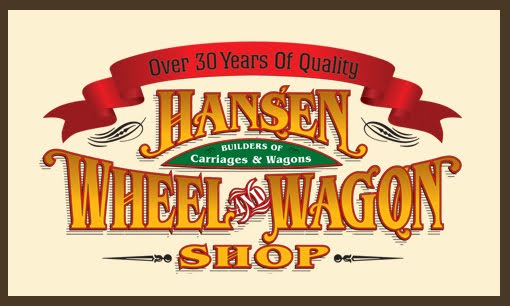Before railroads and telegraph wires reached the remote cities and towns
of the western U.S., stagecoaches were the fastest way to deliver news. People
would gather at stage stops and eagerly await the arrival of newspapers and
mail.
Their heyday didn’t last out the 19th century, though, and by the early
1900s, stagecoaches had become little more than faint memories of days gone by.
The ones that survived ended up in museums or as novelties at amusement parks
and in parades. A few were stored away in the backs of barns where they sat
silently, slowly decomposing ghosts from the past.
One such barn-find relic was rescued several years back by the Carriage
and Western Art Museum of Santa Barbara, California. Originally built in the
1870s by the M.P. Henderson Co. in Stockton, California, the stagecoach carried
mail and passengers 75 miles from Santa Barbara to Ventura and eastward through
the rugged Santa Clara River Valley to the gold, oil, and cattle town of Saugus
(part of present-day Santa Clarita). Besides the challenging terrain, the
coaches were under constant danger from outlaws like the infamous Tiburcio
Vásquez.
The Saugus stagecoach was stored in the Carriage Museum until the Los
Rancheros Pobres, a men’s horseback riding club in Santa Barbara, raised the
funds to have it restored by Hansen Wheel and Wagon Shop for the 90th
anniversary of Santa Barbara’s Old Spanish Days celebration in early August,
2014.
“The museum and the Pobres knew they had a special coach with strong
historic connections to the area’s past and wanted to restore it as close to
its original condition as possible,” says Doug Hansen, owner of Hansen Wheel
and Wagon Shop in Letcher, South Dakota.
When the coach arrived at Hansen’s shop, Doug’s daughter, Leah Murray,
the shop’s Project Manager, set about coordinating with the various
craftspeople who would be involved in the restoration. “The coach is what was
known as a ‘mud wagon’ meaning that it ran through areas that had little in the
way of established roads,” Murray says. “It was remarkable that it had survived
125 years given what it must have gone through.”
Hansen and his team of wheelwrights, blacksmiths, painters and
upholsterers spent six months and over 650 hours meticulously disassembling,
restoring, and reassembling hundreds of parts, reusing what they could and
custom building other pieces to replicate them as authentically as possible.
They used Italian naked leather hides to restore the upholstery to its original
look and custom-formulated paints to be historically accurate and preserve the
patina and graphics of the coach in its heyday.
“When we restore a coach, it’s a lot like an archaeological dig,” Hansen
says. “Many times we find things unique to a particular wagon that give us
insights into its history.” In the case of the Saugus coach, Hansen’s team
found a leather scabbard designed to carry an axe mounted to the front boot.
“This was evidence that the trail often had to be cleared of fallen brush
before the coach could proceed on its journey.” Other times, Hansen workers
have found inscriptions and dates that tie a wagon to specific craftsmen and
times.
Throughout the restoration, Murray and Hansen stayed in close contact by
phone and email with the museum staff 1,700 miles away. “I was struck by the
irony of using today’s instant communication to help restore a part of history
from a time when getting information across a hundred miles could take days and
involved a fair amount of risk,” Hansen says.
While Hansen’s products are firmly rooted in the past, the company’s
reach is high tech through its Magento ecommerce website, http://www.hansenwheel.com.
“Our online ordering and secure payment capability allow customers anywhere to
shop with us 24-7,” Hansen added. “We’re excited to bring our quality and
craftsmanship to wagon enthusiasts around the world.”
Established in 1978, Hansen Wheel and Wagon Shop’s customers range from
museums and collectors to corporate marketing departments and theme parks such
as Disney and Knott’s Berry Farm. International customers include an amusement
park in Japan, a historical society in Denmark, and a private ranch in Uruguay.
Nearly a third of Hansen Wheel and Wagon Shop’s business comes from interior
designers and film production prop departments. Hansen wagons have been cast in
movies such as “Dances with Wolves” and “Pirates of the Caribbean.”
“I’ve been around horses and wagons all my life, so becoming a wagon
maker seemed a natural way to bring my heritage together with my love of
western history in order to preserve that legacy for the future,” Hansen says.
Thirty-six years after its opening, the shop has become the premier builder of
authentic horse-drawn vehicles worldwide.
For
information about Hansen Wheel and Wagon Shop, contact: Doug Hansen http://www.hansenwheel.com

No comments:
Post a Comment